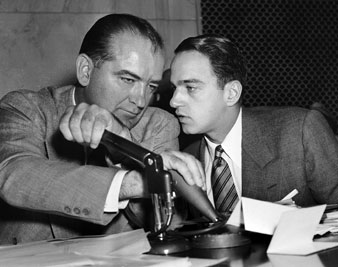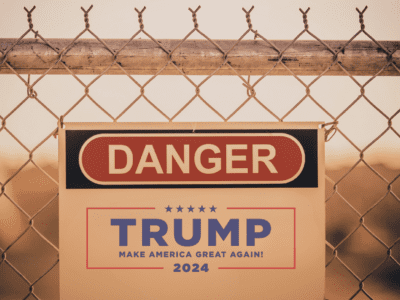Journalism and Political Polarization
Reporters Might Hold A Key To Improving Environmental Politics

It’s no surprise that American politics has gotten significantly more polarized over the last three decades, so it stands to reason that legislatures have gotten more polarized as well. But in a recent article in the Journal of Political Economy by James Snyder and David Stromberg, brought to my attention by Professor Seth Masket writing in Vox, another cause of polarization stands out:
We estimate the impact of press coverage on citizen knowledge, politicians’ actions, and policy. We find that voters living in areas where, for exogenous reasons, the press covers their U.S. House representative less are less likely to recall their representative’s name and less able to describe and rate him or her. Congressmen who are less covered by the local press work less for their constituencies: they are less likely to stand witness before congressional hearings, to serve on constituency‐oriented committees (perhaps), and to vote against the party line. Finally, federal spending is lower in areas with exogenously lower press coverage of congressmen.
Masket, describing a new symposium on state legislatures in PS: Political Science and Politics, notes that
[c]overage of state legislatures has been declining for decades, and the gutting of various local newspapers recently has made this worse. Good coverage makes legislators want to vote with their constituents lest they appear to be a bad fit for their district. But if no one’s watching them, it’s hard for voters to care about this.
There are still lots of reporters covering Congress, but the collapse of state journalism may have been going on longer than even that for localities: when I was growing up, local television stations all had bureaus in Sacramento. Those disappeared years ago.
It doesn’t take much to see how this applies to environmental politics, which have become massively polarized over the last four decades. The original Clean Air Act passed the US Senate unanimously, a development that is hard to believe even with the receipts. Even as late as 1990, amendments passed 89-11. The national Republican Party’s retreat into Know-Nothingism has made that vastly more difficult.
But state Republican parties have not gone full caveman yet. If we want to attempt to ameliorate polarization on environmental issues, an important place to start is investing in environmental journalism. And universities are well-placed to take the lead in that.
I realize that I am beginning to sound like a broken record on this. But pretty much every day, stories keep popping up about it. The need to support environmental journalism is pretty much overwhelming, even as we try to ignore it. As Orwell pungently noted, “to see what is in front of one’s nose needs a constant struggle.”
Reader Comments
One Reply to “Journalism and Political Polarization”
Comments are closed.







Gosh, I hardly get one comment posted to you when you come up with another excellent post.
I know exactly how you feel when you say: “I realize that I am beginning to sound like a broken record on this” but I must caution you with a must frustrating fact of life.
Our most excellent Berkeley J-school journalists participated in publishing one of the greatest issues of CALIFORNIA alumni magazine in Sept/Oct 2006, the “Global Warning” issue.
https://alumni.berkeley.edu/california-magazine/september-october-2006-global-warning
You really need to have a copy of the entire magazine to fully appreciate its true excellence. However, the most frustrating fact of life was that no one really followed up on this Global Warning and we are paying an increasingly outrageous price for this failure to heed and act upon our own warning with the sense of urgency this issue justified.
I hope you can be the right person to provide the leadership to make sure we adapt in time, as time runs out faster than past forecasts ever predicted.